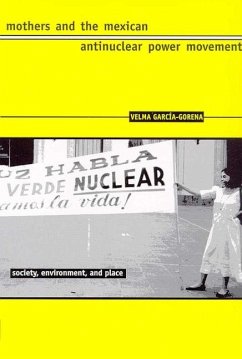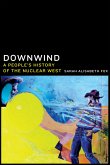In the early 1970s construction began on a nuclear power plant at Laguna Verde in the Mexican state of Veracruz. Initially, most local citizens were largely unconcerned with the prospect of having the nuclear plant in their community. With the accidents at Three Mile Island and Chernobyl, however, residents' complacency toward the power plant soon turned to opposition. Protest groups such as the Madres Veracruzanas emerged to join existing environmental groups in a fight to close down the facility. In "Mothers and the Mexican Antinuclear Power Movement," Velma Garcia-Gorena traces the protest movement against the Mexican government's Laguna Verde nuclear plant, outlining the movement's formation, development, and decline. Documenting the movement's key players and turning points in superb detail, she interweaves important historical narrative with a deft examination of the events, framing her analysis in terms of social movement literature. In a departure from the more conventional New Social Movements approach to analyzing antinuclear movements, Garcia-Gorena demonstrates how, in many ways, movements of this kind are not so new and how a modified "political process" approach fits much better. With a sophisticated application of various social movements' paradigms, Garcia-Gorena incorporates perspectives such as resource mobilization, political process paradigms, and feminist theory. Timely, well written, and thoroughly researched, "Mothers and the Mexican Antinuclear Power Movement" fills a major gap in the literature on grassroots environmental movements in Latin America. Both rich in empirical detail and convincing in its conclusions, this study provides a broader understanding ofMexican social movements and the quest for democracy in developing countries.








